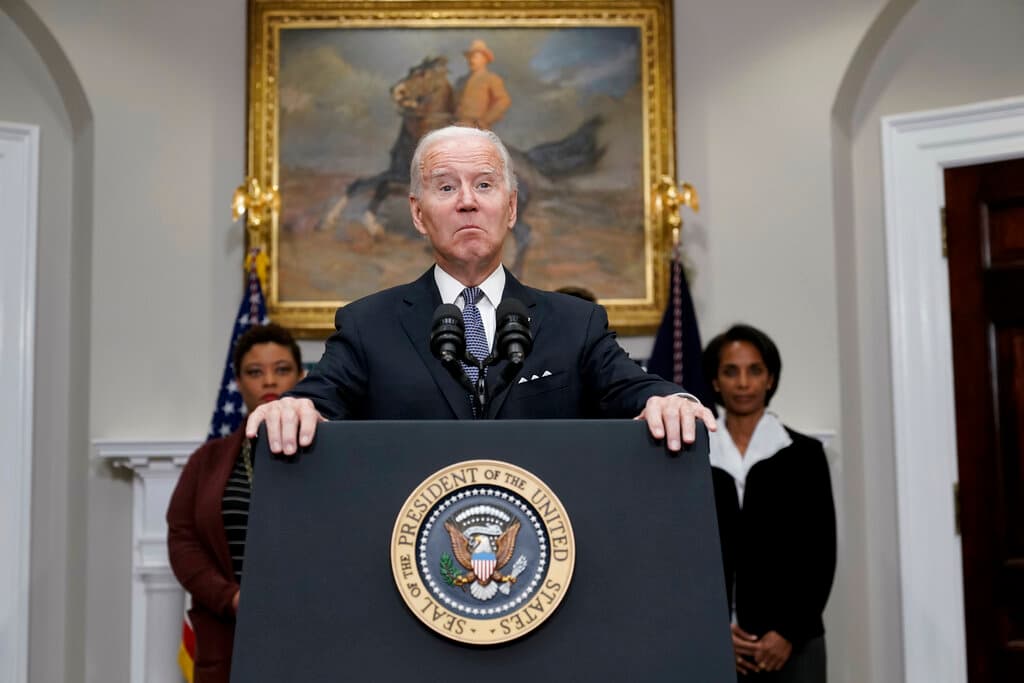Republicans Have Bigger Carp To Fry than Biden’s Stash of Documents
The Republican majority in the House would be wise to resist the temptation to make political hay out of the president’s retention of classified records from his time as Vice President.

It was only in August that Attorney General Merrick Garland authorized an FBI raid at Mar-a-Lago to retrieve classified documents that President Trump asserted he did not have to send to the National Archive.
There is a temptation now for the Republican majority in the House to make political hay out of Mr. Biden’s retention of classified records from his time as Vice President.
There are already signs that such a move is under foot. The chairman of the House Committee on Oversight, Congressman James Comer, on January 10 sent letters to the National Archives and the White House general counsel requesting information on whether the documents recently found by President Biden’s lawyers may have compromised sources and methods.
One can imagine televised hearings where lawmakers would speculate about the grave consequence of state secrets falling into the hands of a foreign power. Did Hunter Biden know about the garage papers?
And while such a spectacle would be justified given the media’s and Democrat party’s freakout last summer about the Mar-a-Lago raid, it would also be unwise.
Republicans have already committed to hold a number of other high-profile hearings on everything from the politicization of the FBI and the intelligence community, to the disastrous withdrawal of U.S. forces from Afghanistan. Hearings focused on the Wilmington papers will only dilute the potency of more pressing oversight.
One might argue that the protection of state secrets is important on its own. And in theory that is true. In practice, however, it’s a very different story.
Bill Leonard, who served as the director of the Information Security Oversight Office at the National Archives under President George W. Bush, tells me that it is not unusual for former senior officials to have classified documents mixed up with their personal papers after leaving office.
“Based upon my experience,” he said, “the fact that classified documents ended up outside proper channels, I hate to admit it, it may not be an everyday occurrence, but it’s not an unusual occurrence.”
Mr. Leonard tells me that he was surprised when he first learned of the FBI raid at Mar-a-Lago because in his experience the national archive had not involved the FBI and the Justice Department in disputes with former presidents. “I was racking my brain to come up with an explanation for why this happened,” he said.
The problem is that the government has tried to protect too many secrets for decades. This issue of over-classification has created a kind of two tier system for enforcement of the Espionage Act and related statutes.
Often times the Justice Department will seek hard time for lower level officials who mishandle classified material, while senior officials like General David Petraeus will get more lenient deals.
Another problem for Republicans if they pursue President Biden’s own improper storage of state secrets is that it undermines their oversight of the intelligence community. The FBI and CIA will almost certainly refuse requests from Congress on the grounds that cooperation will damage national security.
Just consider the battle between Republicans on the House Intelligence Committee and the FBI over disclosing information about the 2016 and 2017 surveillance warrants for Carter Page. At the time, in January 2018, the FBI director, Christopher Wray, warned the White House not to allow the committee to release that memo.
Nearly two years later, the Justice Department’s Inspector General released a report that confirmed the 2018 memo and provided even more details about the errors and deceptions from the FBI in the warrant application. In that case, the FBI stoked fears about state secrecy to hide a scandal from public view.

